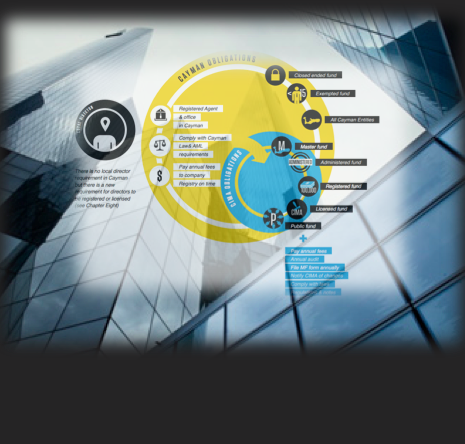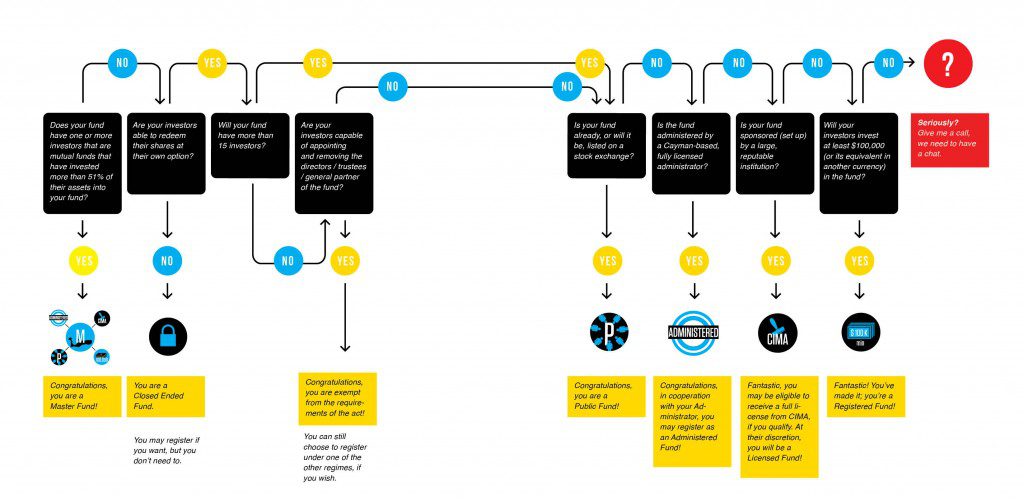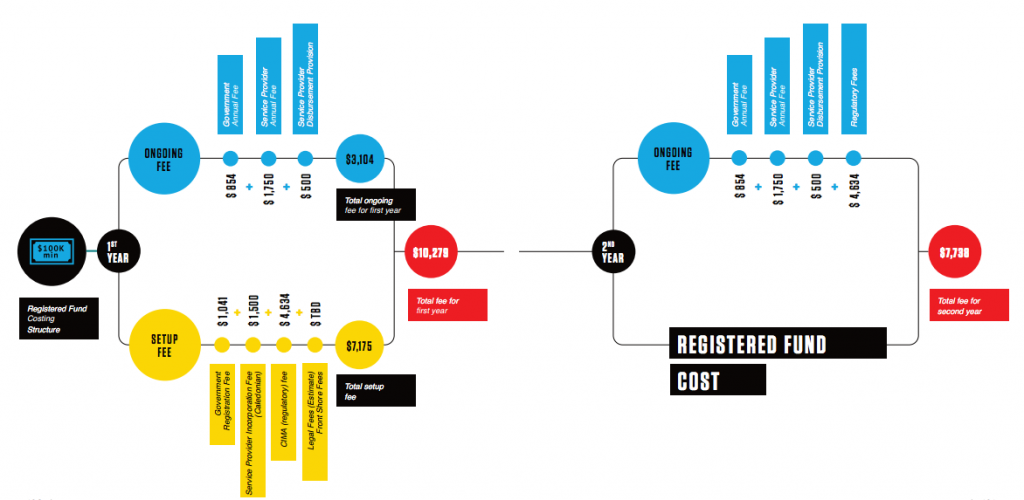“The key distinctive element of a fund (vs. a company) is the ability of investors to ‘redeem’ (cash out) their investment at pretty much anytime”. by Gordon Casey, Cayman Edge: How to set up a Cayman Fund
Setting up a Hedge Fund is a very complex procedure, especially if undertaken in different country, considering different regulatory structures involving many layers of communication with various teams from different continents. Gordon Caseys book, Cayman Edge: How to set up a Cayman Fund is a fantastic guide for everyone who would like to set up a Cayman Hedge Fund. I would suggest that it is also useful for those who are planning to set up an Offshore hedge fund, not only in Cayman area. Besides Cayman Islands, the Isle of Man is another attractive jurisdiction for setting up a fund or for starting an offshore company. Investors interested in opening offshore companies, should know that a good option in terms of offshore company formation matters is Belize. The book, done with a fantastic visual and design work, gives an idea about procedure, complex structure and important tiny details, that might derail all the project if underestimated.
The books is divided into three main parts covering data on different types of funds, their unique corporate and regulatory requirements, introduction to the main legislation as well as costs involved. I would say that it is a ‘body’ of the book, while it’s ‘soul’ is introduced by amazing infographic presentations, almost for every step.
Source: www.gordoncasey.com
To talk about the book and his author HedgeThink interviewed Gordon Casey, writer and Managing Director, Front Shore B.V.
1. Can you tell us about your background, education? How did you get involved in the alternative industry and hedge fund industry, and special the offshore industry?
I was born in Zambia and raised in Ireland, England, Qatar, Canada and South Africa. I studied Law at the University of Cape Town and then worked as a lawyer in Johannesburg for a few years before working in Dublin and London on short-term contracts and ending up as an in-house lawyer for Citco Fund Services at their Curacao office in May 2001.
Prior to working with Citco I had very little exposure to either the alternative investment industry or the offshore industry.
2. Why did you start your company?
I really just wanted to have a go at building a business, running something independently and seeing what I could, or could not, accomplish on my own terms.
3. What do you think makes your company unique in the industry?
Our focus is really on delivering excellent service at the setup phase of a funds life the most common phase, in our experience, to suffer from delays and budget issues. Traditionally, this phase is dealt with as a simple legal issue: draft the documents, file the applications etc. But we see it as a more complex endeavor involving multiple parties and input, a variety of key tracks and deliverables and well-worn risk areas that are ripe for mitigation. Nobody else in the business, that we can find, is really delivering project management excellent to the setup process.
4. What are some of your favorite hedge fund books?
I must confess that Ive read precious few. Lowensteins book on Long-Term Capital Management (When Genius Failed) is excellent, of course, and I enjoyed a book on the South African industry (Constructing and Understanding Hedge Funds) recently, although largely for the enthusiasm with which the authors tackled the topic. Other than that Daniel Strachmans books are worth a read.
5. You published recently a book about off shore can you describe your drive for it and your vision?
We tend to be asked the same questions by most managers I tried to write a white paper that covered most of them but it just wasnt comprehensive enough and left certain questions begging. Eventually I settled on the idea of a comprehensive book to cover the entire fund setup process. As a lot of issues are jurisdiction-specific and covering all the offshore jurisdictions would just confuse the issue, I chose to focus on the number one jurisdiction for fund setups, the Cayman Islands. My hope is that emerging managers will find the book before they speak to lawyers or other service providers and will use it to inform themselves on the process and be able to extract more value from those service providers as a result. (And it should help the service providers too, as better-informed clients are a real joy to deal with.)
6. You book has a strong visual identity and some impressive infographics. Can you describe it?
I managed to write the book in about 15 weeks but the visuals took nearly 9 months to finalise. I really believe that strong visuals are key to communicating certain ideas and that visual elements like buttons and icons can help to anchor key concepts for future recall, even if they arent complicated per se. I had sketched out ideas for most of the more difficult concepts at a very early stage but had expected to find a designer that would be able to do better than me. In the end that wasnt the case and I had an illustrator convert my sketches into actual digital images and then handed everything over to a designer to convert everything into the final format that you see. Personally I think the book looks amazing and the visuals really make the whole package come alive.
7. The offshore industry has a very polemic and challenging image. What are your views on it?
I have very strong opinions on it as you might imagine! I find the allegation that there is a moral obligation that is being flaunted by companies that engage in tax planning to be very self-serving. One of my favourites is when self-styled watch-dogs point to statistics that demonstrate that more than 50% of corporate fraud cases involve offshore companies or bank accounts; they invariably fail to mention that 100% of corporate fraud cases involve onshore companies and bank accounts, and most of them involve highly-regulated entities as well. I have no problem with a fair and global tax system (I personally pay close to 50% in income tax despite living in the Caribbean) but I view a lot of the positioning by the OECD and FATF as little more than bully tactics by the developed world dressed up in the language of corporate governance.
8. What fascinates you about off shore business and related challenges?
Its fundamentally misunderstood by the public at large, and everyone has an opinion on it. I often wonder if every industry that gets put in the spotlight by the media all of a sudden has the same experience as I do when they read an article by the press: they dont understand the most basic elements of the industry. I like being on the edge in this sense, the laws are in flux, there is media attention and discussion around the industry and were here in the middle of it.
9. In the various years in the hedge fund industry, you must have seen a lot of change. What do you think has changed for the better and what, if anything, has changed for the worse?
This may seem like a contradiction of what I said previously, but its not: I think that the corporate governance that has been introduced to the industry through pressure from institutional investors and the rise of Operational Due Diligence consultants to be extremely positive. While the Wild West atmosphere is missed, to a certain extent, were better off without it and I think its a service to the investors and the public at large to see how things are done these days. If anything has changed for the worse I think it has to be the cost of regulatory compliance. The corporate governance changes that have been driven by investors are running in tandem with the regulatory and compliance obligations that are thrust on funds and managers globally usually by a regulator that is not experienced within the industry, and is reacting instinctively to public pressure based on perception and calculated to appear conscientious and responsive (rather than based on the actual risks inherent within the industry which are not imaginary, but are not being targeted by any of the new regulations or requirements, as far as I can see.)
10. Youve also spent a lot of time counselling offshore hedge fund managers on how to be successful. What do you think is the most critical skill for investment manager success?
Small managers that can understand, and execute, on the need to have a culture of compliance within their business, and to ensure that they employ operational excellence at all levels of the business, not just their investment strategy, are far more likely to succeed than others. My counsel is often the same as you might give to anybody starting any other business: remember to think strategically and not just operationally, allocate more time to the administrative tasks than you think they will take, and remember that you are not just a fund manager, you are also an entrepreneur and a CEO and a team leader.
11. What are the biggest challenges you see for the off shore hedge fund industry in the next 3 to 5 years?
The world is changing dramatically, both in terms of how offshore vehicles are treated generally and how funds and investments into funds, specifically, are treated. Staying on top of those issues, whether you are a manager, an investor or a jurisdiction seeking business, will be immensely challenging. FATCA has been a game-changer and theres far more of that to come.
12.What are the best pieces of advice you can offer to overcome these challenges?
Im afraid I have nothing specific to offer, just generic words of wisdom that we all pay attention, accept that the worst can happen, and try to be flexible in how we approach everything!

Peyman Khosravani is a global blockchain and digital transformation expert with a passion for marketing, futuristic ideas, analytics insights, startup businesses, and effective communications. He has extensive experience in blockchain and DeFi projects and is committed to using technology to bring justice and fairness to society and promote freedom. Peyman has worked with international organizations to improve digital transformation strategies and data-gathering strategies that help identify customer touchpoints and sources of data that tell the story of what is happening. With his expertise in blockchain, digital transformation, marketing, analytics insights, startup businesses, and effective communications, Peyman is dedicated to helping businesses succeed in the digital age. He believes that technology can be used as a tool for positive change in the world.












